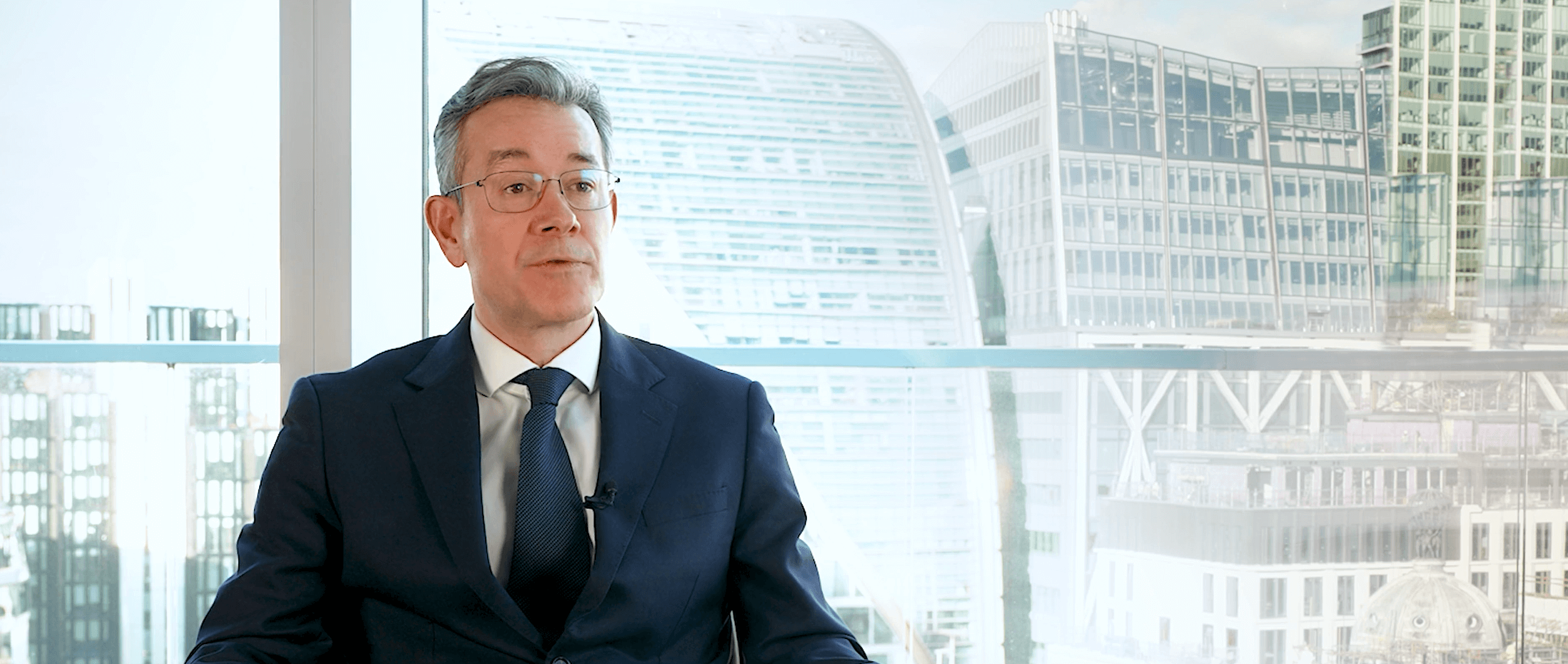ESG at Mondrian
Mondrian’s long-term, fundamental research process has always demanded that analysts strive to consider all financially material risks and opportunities that could influence a security’s valuation, including environmental, social and governance matters.
Equities
In advocating for an integrated approach, we argue that all financially material items that could influence a company’s valuation – as determined by its future cash generation and shareholder returns – should be rigorously analyzed and incorporated as part of an in-depth research process. Considerations stemming from environmental, social, and governance risks and opportunities must, where financially material, be included in this process. Taken not in aggregate but as individual items, they can be understood in the context of the company’s specific financial and operational situation.
Fixed Income
Mondrian invests in bond markets that best compensate for inflation and sovereign credit risks, measured by a market’s Prospective Real Yield (PRY). We define PRY as the 10-year government bond yield less Mondrian’s inflation forecast and sovereign credit adjustment. Our approach to the integration of financially material ESG considerations in the fixed income investment process is consistent for both sovereigns and corporate credits in the explicit incorporation of ESG metrics into an issuer’s proprietary credit rating.
Mondrian’s Global Green Bond product offers investors a way to allocate capital to environmentally beneficial projects for diversified positive impact investing, focusing on green bonds issued by both sovereigns and corporates. The product applies the same Mondrian global fixed income investment philosophy and process used for over 30 years.
Overview
At Mondrian, we would consider any security within a given universe if we feel it offers compelling long-term risk-adjusted returns. Mondrian’s long-term, fundamental research process has always demanded that analysts strive to consider all financially material risks and opportunities that could influence a security or market’s valuation, including those items rooted in environmental, social, and governance concerns.
The willingness of value investors to take a position in a broad range of companies and industries – including those that typically score very poorly with regards to certain ESG characteristics – has been taken by some to mean that a value investment philosophy is incompatible with the incorporation of ESG risks and opportunities. This does not be the case as demonstrated by Mondrian’s integrated approach to incorporation in our equity and fixed income strategies.
Analysts adopting a holistic approach, rather than ESG specialists operating in silos, create greater efficiency and context, focusing on the most financially material issues for a company.
Mondrian has always believed it is the responsibility of all investment professionals to understand and incorporate the impact of financially material environmental, social and governance risks and opportunities on our present and potential investments, and their long-term profitability.
Mondrian’s ESG Investment Steering Committee, a sub-committee of the Mondrian Board, sets and reviews firm-wide ESG initiatives to ensure that our resources and investment staff are capable of meeting ongoing developments associated with these issues. Through the work of the ESG Investment Steering Committee we look to better support our investment team to enhance and evolve our analysis of financially material ESG risks and opportunities and stewardship practices. It helps to ensure Committee members and in turn their respective teams, stay up to date on ESG and stewardship practices at Mondrian and within the industry given this constantly evolving space. It meets quarterly and comprises of ten committee members including senior members from each investment team, General Counsel, Chief Compliance Officer, and Head of Global Client Services. The Committee is chaired by the Head of ESG Investment and reports to the Board twice a year. Mondrian’s Board is ultimately responsible for overseeing all firm practices, including ESG practices.
Equities
In advocating for an integrated approach, we argue that all financially material items that could influence a company’s valuation – as determined by its future cash generation and shareholder returns – should be rigorously analyzed and incorporated as part of an in-depth research process. Considerations stemming from environmental, social, and governance risks and opportunities must, where financially material, be included in this process. Taken not in aggregate but as individual items, they can be understood in the context of the company’s specific financial and operational situation.
The result of this risk-based approach is that, much like any other strategic, financial or regulatory risk incorporated into an equity valuation, the presence of financially material ESG-based risks need not preclude investment, provided that they are adequately discounted in the market price.
Across all of Mondrian’s equity investment products, the research process is driven by extensive, bottom-up fundamental company analysis which includes a comprehensive program of meeting with representatives from current and prospective holdings. We believe that the value of any equity security is equal to the present value of its future cash flows to the investor, which are primarily dividends. The principal focus of our investment professionals is constructing long-term models of these cash flows as inputs into our Dividend Discount Model.
Clear ESG Integration Process
To make the integration of these items in the equity valuation process more transparent, Mondrian utilizes a proprietary ESG Summary Report to document the research and analysis carried out on financially material ESG risks and opportunities, including the quantitative impacts in our valuation models.
The ESG Summary Report explicitly documents the influence of financially material ESG risks and opportunities on our valuation assessments and is completed for all current and prospective equity holdings. By systematically considering both a set of core values as well as company-specific items, we aim to capture and quantify financially material items that could impact the base, best and worst-case scenario risk analysis over the short, medium and long term. Documenting these items helps Mondrian quantify the impact of ESG risks and opportunities on a company’s valuation.
Climate Change
Climate change mitigation efforts with accompanying policies, regulations, subsidies, incentives, levies and disclosure requirements, pose both investment challenges and opportunities.
We believe Mondrian is well placed to adapt to the evolving investment environment in terms of pricing risks and opportunities. Mondrian utilises a disciplined valuation framework to analyse companies based on their fundamentals together with a long-term investment horizon, and scenario analysis to understand the skew of potential investment outcomes. To the extent that issues such as climate change, carbon emissions, water usage and energy usage have been identified as potentially financially material risks or opportunities to consider in evaluating the investment case of a particular company, our analysts will conduct further investigation into the extent of these exposures as well as any risk mitigation. The findings from this questioning and disclosure will be incorporated into our overall investment evaluation of the company and highlighted in the ESG Summary Report.
Stewardship
Stewardship considerations are part of the initial purchase decision, subsequent monitoring of an investment and any ongoing dialogue with an investee company, including active participation through our proxy voting process.
Engagement Process
Mondrian’s engagement process encompasses discussions on key financially material ESG risks and opportunities and includes a focus on accountability which involves tracking a corporate’s progress in meeting its business plan targets. Should a company held in our portfolio consistently disappoint in its deliverables, with implications to its long-term valuation, we will typically engage with its management and the board for both understanding as well as to steer change. Local practice and governance standards are considered when voting shares or engaging with the management of companies particularly in less developed markets, and actions are taken on a case-by-case basis. Should engagement and proxy voting continue to prove unsuccessful in fulfilling the required objectives, Mondrian may choose to divest the shares. Please see Mondrian’s Engagement Policy for more information.
Proxy Voting Summary
Our clients typically delegate Mondrian the authority to vote proxies for the securities held in their accounts. Mondrian votes proxies pursuant to its Proxy Voting Policy and Procedures. The aim is not to micro-manage but to ensure that each company is run in the best interests of the shareholders. Please see Mondrian’s Proxy Voting Policy and Procedures for more information.
Fixed Income
Mondrian invests in bond markets that best compensate for inflation and sovereign credit risks, measured by a market’s Prospective Real Yield (PRY). We define PRY as the 10-year government bond yield less Mondrian’s inflation forecast and sovereign credit adjustment. Our approach to the integration of financially material ESG considerations in the fixed income investment process is consistent for both sovereigns and corporate credits in the explicit incorporation of ESG metrics into an issuer’s proprietary credit rating.
Sovereign Credit Analysis
Sovereign credit analysis is an integral part of our top-down investment process. This analysis includes environmental, social and governance items, which ultimately inform our sovereign credit adjustment. The weaker the overall credit assessment, the higher the sovereign credit adjustment, resulting in a greater PRY premium required to drive an allocation.
ESG considerations are an important part of our assessment of sovereign creditworthiness, which feeds into our valuation process. Good governance, the rule of law, unambiguous property rights and the control of corruption are fundamental pre-requisites for sustainable growth and development, which support a government’s ability to service its financial obligations.
Climate Change
Environmental issues inform our sovereign credit adjustment; higher sovereign credit adjustments result in a greater PRY premium required to drive an allocation. Undiversified economies based on commodities, agriculture or tourism can be exposed to environment-related shocks, such as flooding and storm damage, that can place additional burdens on the sovereign balance sheet.
Corporate Credit Analysis
Corporate credit analysis explicitly incorporates a proprietary environmental, social and governance rating. This contributes to our corporate credit rating for each issuer, which in turn directly impacts how much of that issuer’s debt can be held across our portfolios according to our issuer diversification limits. All corporate bonds in which we might invest are given an ESG rating. We consider the environmental policies, the social impact of the company’s activities, the governance of the company, and the strength of the active ESG policies the company is pursuing and adjust our internal rating accordingly. Engagement with issuers forms an integral part of our assessment, raising items identified in our ESG analysis directly with the company.
Climate Change
The impact on credit quality from environmental risks varies greatly by industry. Environmental items can present both fundamental business risks, for example that posed by the shift to renewable energy on the oil & gas industry, as well as reputational risks.
In order to assess environmental risks to credit quality, we reference MSCI ESG research in addition to information collated through credit analysis from sources such as annual reports, rating agencies, discussions with management and industry research reports. Our environmental assessment contributes to our corporate credit rating for each issuer, which directly impacts portfolio allocation.
Stewardship
Engagement is integral to the investment process for both corporate and sovereign debt as we meet with issuers as a matter of course to further our understanding and highlight issues of importance. Findings from engagement will feed into our ESG rating awarded to each issuer, which in turn directly impacts the valuation we assign to the bonds. The Global Fixed Income and Currency team engages both directly and through collaborative initiatives. Please see Mondrian’s Engagement Policy for more information.
Dedicated ESG Strategies
Mondrian’s long-term, scenario-based approach to value investing is particularly well-suited to the integration of financially material ESG factors and opportunities, which are essential in understanding expected risk-adjusted returns. Our International Equity ESG, Global Equity ESG and Emerging Markets Equity ESG products build on this value approach by combining risk-adjusted returns with principles-based capital allocation decisions:
- Holdings should normally meet or exceed a minimum threshold as assessed using Mondrian’s proprietary ESG Summary Reports.
- Exposure to business involvements deemed unacceptable for the ESG mandate- presently fossil fuel reserves, weapons and tobacco- should be minimized.
- Positive consideration would typically be given to stocks with more favorable ESG characteristics where two or more companies exhibit comparable valuations.
Our dedicated ESG equity products seek to demonstrate Mondrian’s defensive, value-oriented characteristics while placing greater emphasis on ESG concerns in portfolio construction.
Fixed Income
Mondrian’s Global Green Bond product offers investors a way to allocate capital to environmentally beneficial projects for diversified positive impact investing, focusing on green bonds issued by both sovereigns and corporates. The product applies the same Mondrian global fixed income investment philosophy and process used for over 30 years.
News & Insights

Video: International Equities Q4 2023 Update
Senior Portfolio Manager, Nigel Bliss, reviews Q4 2023, our investment performance and provides an outlook for the opportunities ahead.

Global Equity Investment Outlook – Q4 2023
2023 rollercoaster ride ends with a strong year for developed equity markets.

International Equity Investment Outlook – Q4 2023
Despite strong market returns in 2023, public equities at the value end of the market continue to offer attractive long-term expected returns.
